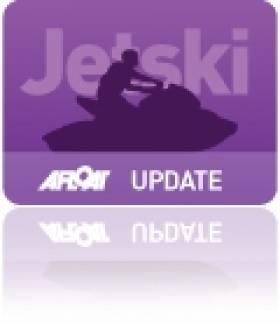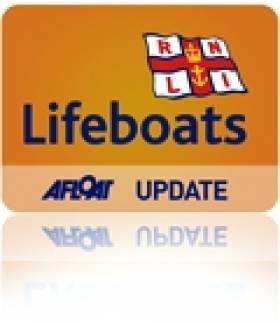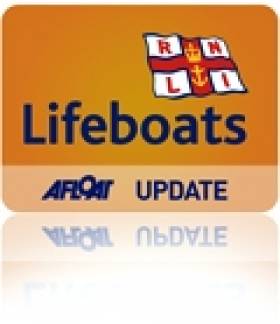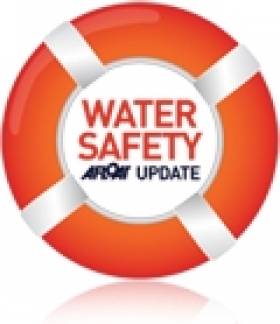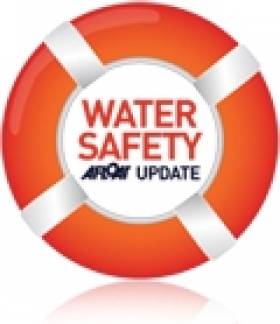Displaying items by tag: Personal Watercraft
Registration For Personal Watercraft Coming In New Year
#Jetskiing - Registration for Jetskis, or personal watercraft, is on the cards in an effort to cut down on antisocial behaviour by 'boy racer' elements that marred some water users' enjoyment of this summer's exceptional warm and sunny days.
According to The Sunday Times of 22 December, the Department of Transport, Tourism and Sport will require owners of such craft, as well as larger vessels like motorboats, to register their vehicles for the first time - a move that's been welcomed by Irish Water Safety.
"There are occasions where these vessels are used in a dangerous, reckless or inconsiderate manner," said the department. "When that does happen it's important to be able to identify the perpetrator."
Though new legislation will be required to introduce registration - which will come with a "reasonable fee" for each vessel - it's believed misbehaving watercraft users would be prosecuted under existing bylaws or health and safety law.
Stranraer RNLI Rescues North Channel Drifters
#RNLI - Stranraer RNLI's lifeboat was dispatched by Belfast Coastguard on Friday evening (7 June) to rescue men from a stranded personal water craft on the rocks at Corsewall Point.
The men had been travelling on the water scooter across the North Channel from Ballycastle in Northern Ireland to Campbeltown in Scotland and back - a round trip of some 130km - but ran out of fuel on the return leg, and drifted to Corsewall on the north point of the Rhins of Galloway.
The RNLI Stranraer lifeboat launched at 5.20pm from Lady Bay and 20 minutes later arrived on scene, where they discovered that two of the men were cold and one had an ankle injury - although a conflicting report via the Belfast Coastguard says only two men were found.
The men were transferred safely on to the lifeboat and taken to Dally Bay, from where they were taken by road to Stranraer Accident and Emergency Hospital.
But as BBC News reports, they were beset by further problems on their return trip to Northern Ireland later that evening, when the private vessel on which they were travelling also ran out of fuel and had to be towed to Red Bay in Co Antrim.
Belfast Coastguard confirmed to the BBC that the men had been travelling on their water scooter with "no navigational aids" and that "they could not get a signal from their mobile phone".
First Outing for Skerries RNLI's New Lifeboat
#RNLI - Skerries RNLI recorded its first service by its new inshore lifeboat on Sunday afternoon (21 April). SEE VIDEO BELOW
The North Co Dublin lifeboat station's volunteer crew was requested to launch following a report that a vessel was adrift off Bettystown beach.
Crew members, alerted by their pagers, launched their new Atlantic 85 lifeboat Louis Simson within 10 minutes.
It was quickly established that the owner of the vessel was on shore. With the potential for the personal water craft (PWC) to pose a danger, the decision was made to locate it and return it to the beach.
Once on scene, a volunteer crew member was put on board the PWC and brought the vessel safely to shore.
Speaking following the callout, Skerries RNLI volunteer crew member Emma Wilson said: "The visibility was good today, but it was something quite small we were looking for, so being able to have an extra crew member on board our new lifeboat really made a difference during the search."
New Regulations to Rein In Jetskis
Green TD and Enviroment minister John Gormley made regulations to regulate the use of jetskis and personal watercraft where they have the potential to affect protected species.
The new regulations address a 2007 European Court finding that Ireland had not dealt with the problem of the damage by such unrestricted recreational activities. Ireland is facing fines from the European Court unless it deals properly with this problem.
According to the Department of the Environment, Heritage and Local Government, there is a risk that jetskis can lead to the swamping of the nests of water birds by power boats and jet skis.
The Regulations give the Minister power to restrict or to prohibit particular recreational activities in specified places where the protection of the nature sites or species requires. Public notice will be given of these restrictions. The Minister will also have power to prepare threat response plans to address threats to sites and species posed by recreational and other activities.
New Regulations to Rein In Jetskis
Green TD and Enviroment minister John Gormley made regulations to regulate the use of jetskis and personal watercraft where they have the potential to affect protected species.
The new regulations address a 2007 European Court finding that Ireland had not dealt with the problem of the damage by such unrestricted recreational activities. Ireland is facing fines from the European Court unless it deals properly with this problem.
According to the Department of the Environment, Heritage and Local Government, there is a risk that jetskis can lead to the swamping of the nests of water birds by power boats and jet skis.
The Regulations give the Minister power to restrict or to prohibit particular recreational activities in specified places where the protection of the nature sites or species requires. Public notice will be given of these restrictions. The Minister will also have power to prepare threat response plans to address threats to sites and species posed by recreational and other activities.


























